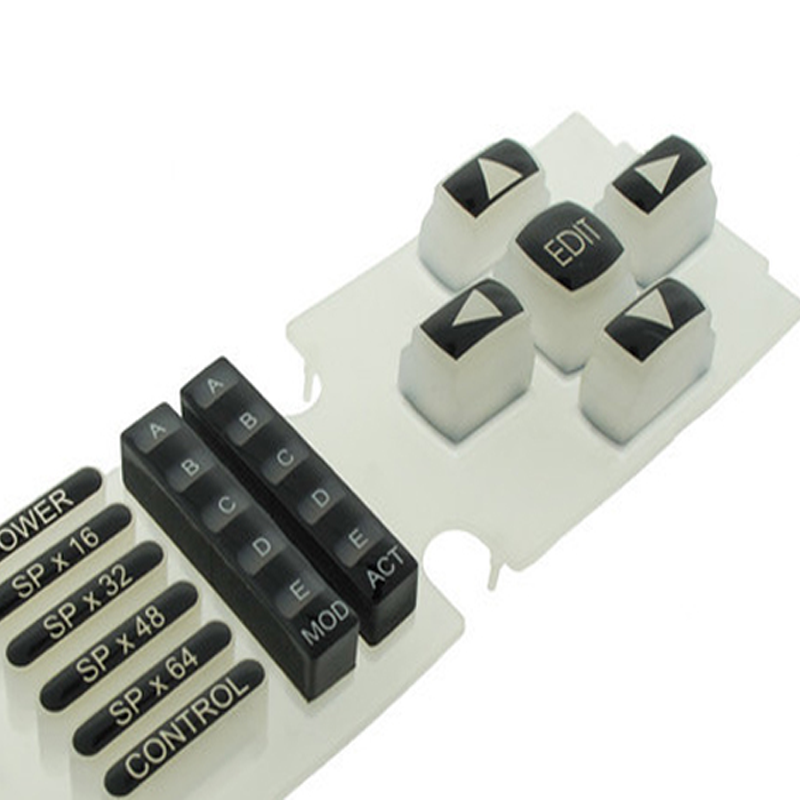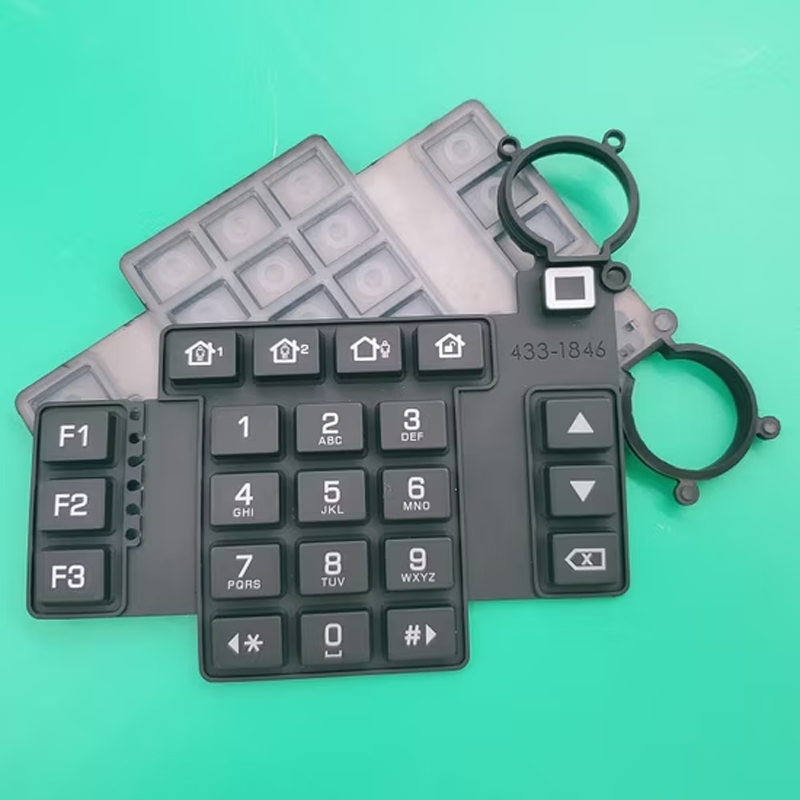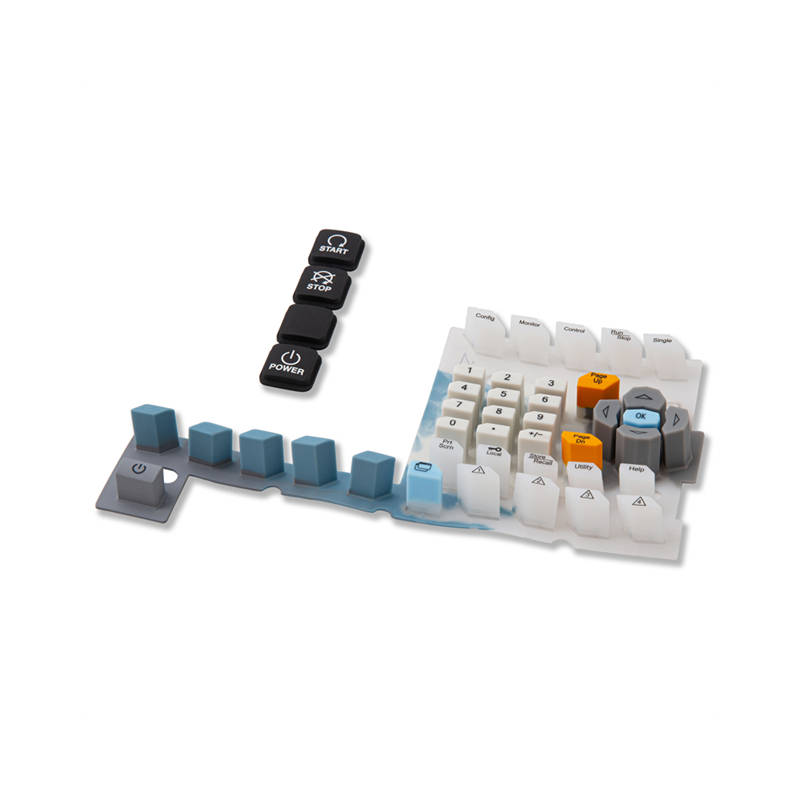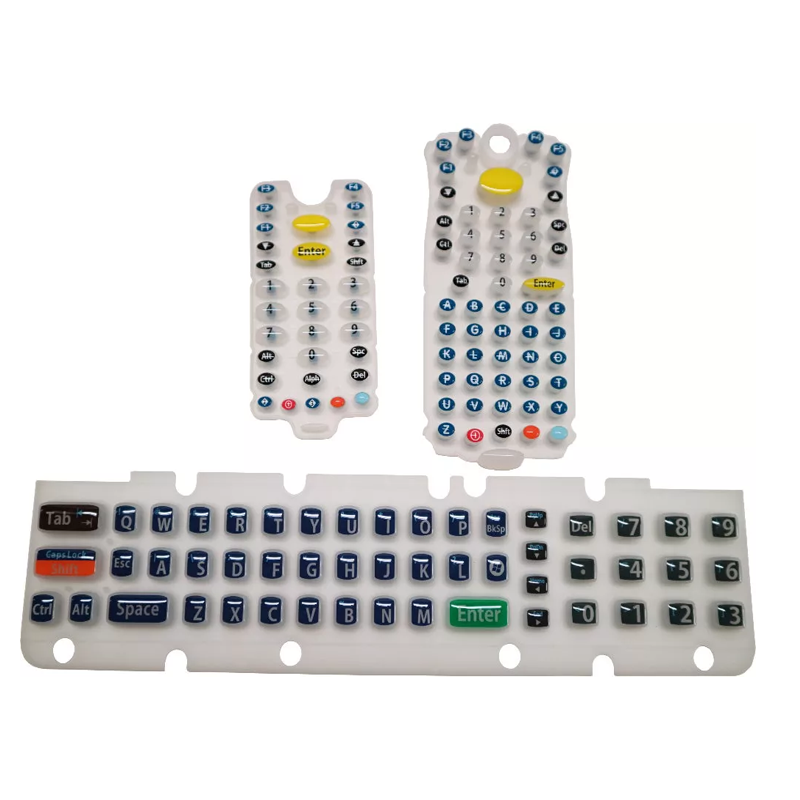In today’s fast-paced world, consumers and businesses alike demand technology that is adaptable, durable, and portable. Flexible rubber keypads, made from high-quality silicone or other polymers, have become a crucial component in a variety of industries due to their versatility and robustness. Whether it’s for point-of-sale terminals, medical devices, or industrial equipment, flexible keypads offer practical benefits that rigid keypads cannot match.
At Silkeypad, we specialize in the production of bespoke silicone keypads tailored to meet the specific needs of our clients. Whether you require a QWERTY keypad, a numeric keypad, or a fully customized design, our advanced manufacturing capabilities ensure that each product is crafted to the highest standards.
What Is a Flexible Keyboard?
A flexible keyboard, commonly referred to as a flexible keypad, is made from silicone or other soft polymers that allow it to bend and flex without damaging the underlying components. These keypads are known for their durability, water resistance, and nearly indestructible nature. Depending on the application, they can be designed in various configurations, from basic numeric keypads to complex custom keyboards, capable of fitting into almost any environment.
At Silkeypad, we leverage our extensive experience and cutting-edge technology to create flexible rubber keypads that are not only functional but also aesthetically pleasing and durable. These keypads are ideal for industries such as agriculture, automotive, medical, and industrial applications, and they offer unmatched versatility and reliability.

Applications of Silicone Keypads
Flexible silicone keypads are found in a wide range of industries. Their durability and adaptability make them suitable for a variety of demanding environments. Some of the most common applications include:
- Medical Devices: Flexible keypads are used in medical devices such as ventilators, monitors, and diagnostic equipment, where durability, ease of cleaning, and resistance to harsh chemicals are critical.
- Automotive Industry: In vehicles, flexible keypads are often used in dashboards and control panels, providing a tactile, waterproof interface that can withstand extreme conditions.
- Agriculture: Used in agricultural machinery and equipment, flexible keypads can endure exposure to dust, moisture, and other environmental factors, ensuring reliability in the field.
- Industrial Equipment: From control panels to machinery, flexible silicone keypads can be designed to meet the unique needs of industrial environments, including resistance to oils, greases, and high temperatures.
At Silkeypad, we pride ourselves on our ability to provide silicone keypads that meet the precise demands of various industries. If you’re interested in learning more about our capabilities or would like to see specific examples, visit our Silicone Keypad Capabilities.

Why Choose Flexible Keyboards?
The demand for portable, compact, and dynamic technology solutions has driven the popularity of flexible keyboards. These keypads are ideal for environments where space is limited, as they can be folded or rolled up for easy storage and transportation. Their light weight and ability to bend make them an excellent option for on-the-go applications.
In addition to portability, flexible keypads are often equipped with plug-and-play connectors, allowing for easy integration with existing systems. Whether through USB connectors or other standardized interfaces, flexible keyboards offer the same functionality as traditional rigid keypads but with greater convenience and flexibility.
Manufacturing Process of Flexible Keyboards
The production of flexible silicone keypads involves several steps, each critical to ensuring the final product meets the highest standards of quality and performance. The most common process used to create flexible keypads is compression molding.
- Compression Molding: This process is similar to a waffle iron, with two halves—one of which contains the design, and the other a reverse of the design. Raw silicone material is placed into the mold cavity, and the halves are closed. The tooling is heated to a specific temperature, causing the silicone to become more viscous and flow into the design area. Once the material has cured, the mold is opened, and the keypad is removed using compressed air.
- Customization: After the keypads are molded, they may require additional steps such as printing or laser etching to customize the design further. At Silkeypad, we offer a variety of graphic printing options, including screen printing and laser etching, to apply logos, text, or other graphics on the surface of the keypads.
– Screen Printing: In this process, ink is pushed through a screen to create the desired graphic. It’s particularly effective for adding logos, text, or designs in high-volume applications.
– Laser Etching: This process uses a laser to remove layers of material from the surface of the keypad, revealing a contrasting layer underneath. It’s ideal for creating precise, durable designs.
- Quality Control: After the molding and customization processes, each keypad undergoes rigorous quality control to ensure that it meets all necessary performance and durability standards. This includes functional testing, visual inspection, and checks for defects such as air bubbles or inconsistencies in the material.
Benefits of Flexible Silicone Keypads
The primary advantages of using flexible silicone keypads in various industries are:
– Durability: Silicone is a highly durable material that resists wear, tears, and extreme temperatures, ensuring that the keypads last longer than traditional plastic keypads.
– Water Resistance: Silicone keypads are inherently water-resistant, making them ideal for use in environments where exposure to moisture is common.

– Customization: With flexible silicone keypads, companies can create highly specialized products tailored to their needs. From custom graphics to specific shapes, we offer full OEM and custom services to ensure your keypads meet your exact requirements.
– Ergonomics: Flexible keypads are often designed with tactile feedback in mind, improving user comfort and experience.
Silkeypad Is Your Trusted Partner for Custom Silicone Keypads
At Silkeypad, we specialize in designing and manufacturing flexible silicone keypads for a wide range of applications. Our expertise and advanced manufacturing processes allow us to produce high-quality, customizable keypads that meet the specific needs of our clients.
If you’re looking for a custom silicone keypad manufacturer, we are here to help. Whether you need a flexible rubber keyboard for POS terminals, industrial equipment, or medical devices, our team is equipped to provide the perfect solution for your application.

Contact us today to learn more about how Silkeypad can help bring your flexible keypad designs to life. We are committed to providing our clients with innovative, reliable, and high-quality solutions. Reach out now to discuss your project and explore how our manufacturing services can meet your unique needs.